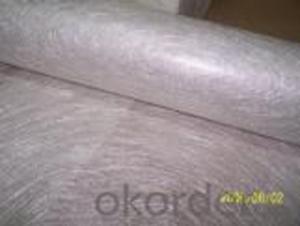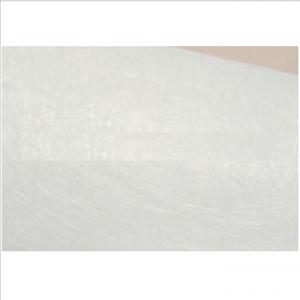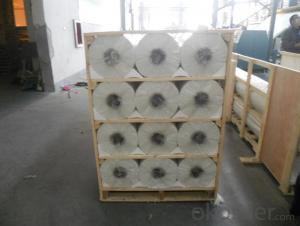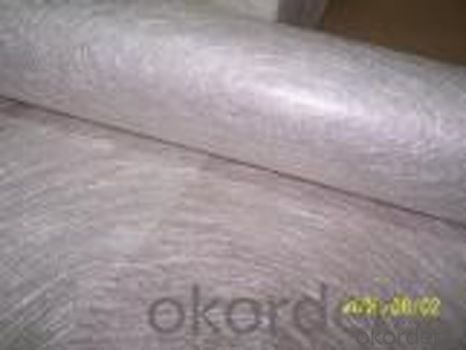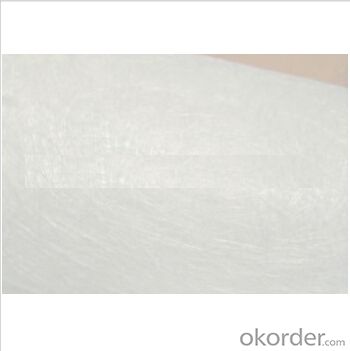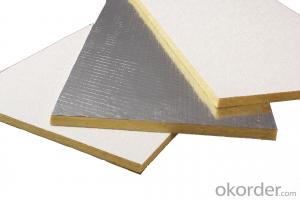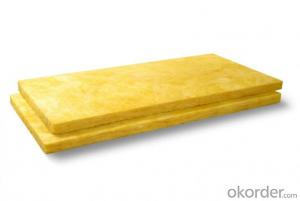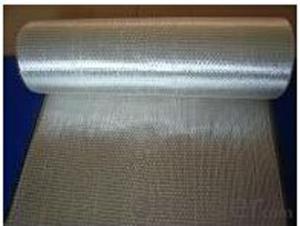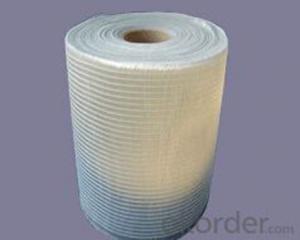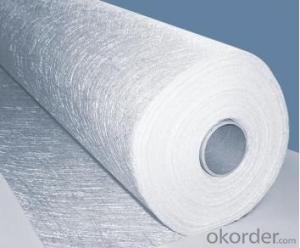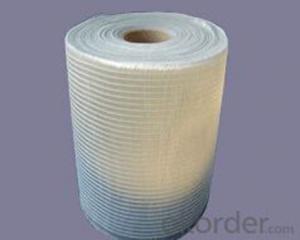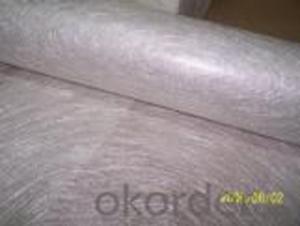Fiberglass Mat Tissue C-Glass Stitch Chopped Strand Mat 300gsm, 50-2400mm
- Loading Port:
- Shanghai
- Payment Terms:
- TT or LC
- Min Order Qty:
- 1000 kg
- Supply Capability:
- 20000 kg/month
OKorder Service Pledge
OKorder Financial Service
You Might Also Like
Process
Fiberglass stitch chopped strand mat is the mat made of fiberglass roving which is at first be cut into certain length and evenly unfolded in all directions and then stitched with polyester yarn.
Properties
• Fiberglass no certain direction, good homogeneity.
• No powder or emulsion; sink quickly and easy to operate
• High tensile strength, easy to operate
• Good impact strength of finished products
Applications
Mainly be used as reinforced materials in the composite material industry.
• Matrix: unsaturated polyester resin, vinyl ester resin, epoxy resin and phenolic resin etc.
• Craft: winding, pultrusion, RTM, molded, hand lay up, etc.
• Ultimate products: Liner layer of tube, pultruded profiles, FRP body of boat, insulation board
Specifications
specifications | Fibre type | Areal weight | Width |
(g/㎡) | (mm) | ||
EMK 300 | E-Glass | 300 | 50-2400 |
EMK380 | E-Glass | 380 | 50-2400 |
EMK450 | E-Glass | 450 | 50-2400 |
CMK 300 | C-Glass | 300 | 50-2400 |
CMK380 | C-Glass | 380 | 50-2400 |
CMK450 | C-Glass | 450 | 50-2400 |
Packaging: Wrapped in PVC and placed within a cardboard carton. | |||
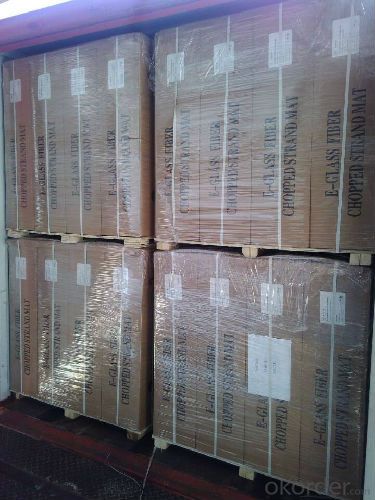
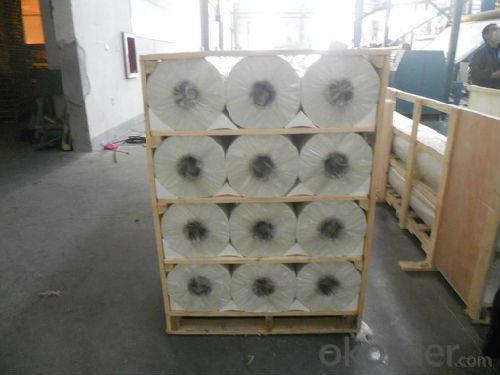
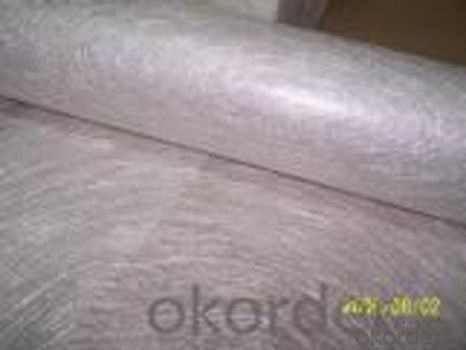
FAQ
a.Pacage
Each CHEMICAL FIBER GRIDDING CLOTH is wound onto a paper tube The roll is wrapped up with plastic film,and then packed in a cardboard box. The rolls can be vertically or horizontally placed. For transportation, the rolls can be loaded into a container directly or on pallets.
b.Product storage:
Unless otherwise specified, CHEMICAL FIBER GRIDDING CLOTH should be stored in a dry, cool and rain-proof area. It is recommended that the room temperature and humidity should be always maintained at 15℃~35℃ and 50%~75% respectively.
- Q: Can fiberglass mat tissue be used for creating molds?
- Using fiberglass mat tissue for creating molds is not possible. Fiberglass mat tissue is primarily utilized as a reinforcement layer in fiberglass composite applications due to its thin and lightweight nature. It is not intended to be used as a material for making molds. Instead, molds are commonly made using silicone, resin, or plaster, as these materials have the capacity to capture intricate details and offer a polished surface finish.
- Q: Is fiberglass mat tissue safe to handle?
- Yes, fiberglass mat tissue is generally safe to handle. However, it is important to take certain precautions when handling fiberglass to minimize any potential risks. Fiberglass mat tissue is made up of fine fibers of glass, and if not handled properly, these fibers can become airborne and may cause irritation to the skin, eyes, and respiratory system. To ensure safety, it is recommended to wear personal protective equipment such as gloves, safety goggles, and a dust mask when handling fiberglass mat tissue. This will help prevent direct contact with the skin, eyes, and inhalation of any loose fibers. It is also advisable to work in a well-ventilated area to reduce the concentration of airborne fibers. In addition, it is essential to handle fiberglass mat tissue with care to prevent any physical injuries. The fibers can be sharp and may cause cuts or abrasions if mishandled. It is advisable to use appropriate tools and techniques to cut, shape, or manipulate the material. Furthermore, it is important to follow proper disposal guidelines for fiberglass waste. Avoid sweeping or vacuuming the area where fiberglass mat tissue has been handled, as this can disperse fibers into the air. Instead, use damp cleaning methods or specialized vacuum cleaners with HEPA filters to contain the fibers and reduce the risk of exposure. By following these safety precautions and handling guidelines, the risks associated with fiberglass mat tissue can be effectively minimized, ensuring safe handling and use of the material.
- Q: Can fiberglass mat tissue be used for making lightweight countertops?
- Indeed, lightweight countertops can be crafted using fiberglass mat tissue. This particular material, derived from delicate glass fibers, possesses the desirable qualities necessary for producing lightweight countertops. Not only does it offer robustness and longevity, but it is also pliable and can be effortlessly shaped and sized to fit various specifications. Moreover, fiberglass mat tissue possesses resistance to moisture, chemicals, and heat, rendering it a fitting choice for countertops that may encounter such elements. In conclusion, utilizing fiberglass mat tissue to fabricate lightweight countertops proves to be a pragmatic and effective resolution.
- Q: What are the main applications of fiberglass mat tissue?
- The main applications of fiberglass mat tissue include reinforcement in the construction industry for roofing, walls, and flooring, as well as insulation in thermal and acoustic systems. It is also used in the manufacturing of automotive parts, boats, and pipes for their strength and durability. Additionally, it finds use in the production of printed circuit boards and as a filtration medium in air and liquid filtration systems.
- Q: Is fiberglass mat tissue resistant to moisture vapor transmission?
- Yes, fiberglass mat tissue is resistant to moisture vapor transmission. It is a highly durable and moisture-resistant material that is commonly used in various applications where moisture control is important, such as in roofing, insulation, and flooring. The fiberglass mat tissue is specifically designed to prevent the transmission of moisture vapor, helping to maintain the integrity and performance of the materials it is used with. Its resistance to moisture vapor transmission makes it an ideal choice for environments where moisture control is critical.
- Q: How does the strength of fiberglass mat tissue compare to other reinforcement materials?
- The strength of fiberglass mat tissue is considered to be quite high when compared to other reinforcement materials. Fiberglass mat tissue is made up of numerous glass fibers that are tightly intertwined, resulting in a strong and durable material. This type of reinforcement material is commonly used in applications that require high strength, such as in the construction industry for reinforcing concrete structures, in the automotive sector for manufacturing lightweight yet strong components, and in the aerospace industry for building aircraft parts. Compared to other reinforcement materials like steel or carbon fiber, fiberglass mat tissue offers several advantages. Firstly, it is relatively lightweight, which makes it easier to handle and transport. Additionally, fiberglass mat tissue has a high tensile strength, meaning it can withstand stretching or pulling forces without breaking. It also has good impact resistance and is capable of absorbing energy, which makes it suitable for applications where impact resistance is important. Moreover, fiberglass mat tissue is highly corrosion resistant, making it suitable for use in harsh environments or in contact with chemicals. Unlike steel, it does not rust or deteriorate over time. Furthermore, fiberglass mat tissue is non-conductive, which is beneficial in applications where electrical conductivity can be a safety hazard or interfere with electronic equipment. Overall, the strength of fiberglass mat tissue is considered to be excellent when compared to other reinforcement materials. Its high tensile strength, lightweight nature, corrosion resistance, and impact resistance make it a versatile and widely used material in various industries.
- Q: Does fiberglass mat tissue have any fire-resistant properties?
- Fiberglass mat tissue indeed possesses fire-resistant properties. Its composition of glass fibers and a thermosetting resin inherently grants it fire resistance. When subjected to high temperatures or flames, fiberglass mat tissue resists ignition and combustion, instead hindering flame propagation and aiding fire containment. As a result, fiberglass mat tissue proves suitable for fire protection necessities in various applications, including insulation, fire barriers, and fireproof panels. Nevertheless, it is crucial to acknowledge that although fiberglass exhibits fire resistance, it remains susceptible to melting or burning in extreme circumstances.
- Q: Is the Teflon gasket filled with fiberglass or graphite?
- PTFE generally used in static sealing, flange what, dynamic seal with FFKM, chemical resistance and PTFE, but with rubber elasticity
- Q: Is fiberglass mat tissue resistant to mildew and rot?
- Yes, fiberglass mat tissue is resistant to mildew and rot. Fiberglass is made from fine glass fibers that are woven together to create a strong and durable material. These fibers are non-porous and do not absorb moisture, making fiberglass mat tissue highly resistant to the growth of mildew and the decomposition caused by rot. Additionally, fiberglass is often coated with protective finishes or treated with additives that further enhance its resistance to these types of biological degradation. This makes fiberglass mat tissue an excellent choice for applications where moisture or humidity is a concern, such as in bathrooms, outdoor structures, or areas prone to high humidity.
- Q: How does the width of fiberglass mat tissue affect its conformability?
- The width of fiberglass mat tissue does not directly affect its conformability. Conformability is primarily determined by the flexibility and pliability of the material itself, rather than its width.
Send your message to us
Fiberglass Mat Tissue C-Glass Stitch Chopped Strand Mat 300gsm, 50-2400mm
- Loading Port:
- Shanghai
- Payment Terms:
- TT or LC
- Min Order Qty:
- 1000 kg
- Supply Capability:
- 20000 kg/month
OKorder Service Pledge
OKorder Financial Service
Similar products
Hot products
Hot Searches
Related keywords
